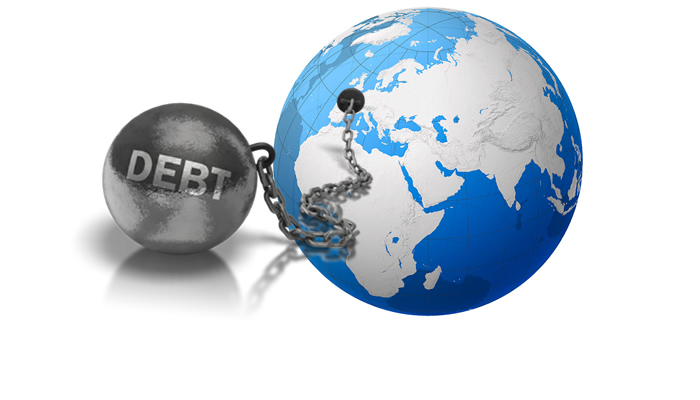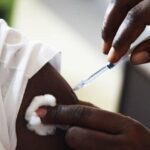
In Public debt and growth, an article published by International Monetary Fund in 2010, Manmohan S. Kumar and Jaejoon Woo posited that “The sharp increase in advanced country sovereign debts as a result of the global economic and financial crisis has led to serious concerns about fiscal sustainability, and their broader economic and financial market impact. A key issue relates to the extent to which large public debts are likely to have an adverse effect on capital accumulation, as well as productivity, and reduce economic growth.” Debt has the possibility of stifling the economic development and growth of nations if ‘misused’. Where income is less or equal to the amount used to service debt, it portends danger for a nation!
Debt is the amount of loan collected for temporary usage by a debtor from a creditor or statutory financial obligation owed with the promise of paying back the loan or obligation with interest or paying back interest regularly and the actual cost (principal) later. Government debt in Nigeria increased to $95779.64m in the fourth quarter of 2021 from $92626.41m in the third quarter of 2021. In 2020, the national debt of Nigeria amounted to approximately 35% of the gross domestic product. As of December 2021, the ratio was 22.47%, which still remained within the country’s limit of 40% of GDP.
This discourse is about answering two questions: What makes national debt toxic and at what level is debt a bad procurement? To answer these questions, it is pertinent to ask: Can poor nations survive without debt? Or, how can cash-strapped nations develop their resources (human, material and natural)? Economists, all over the world agree that economic development and growth of nations are determined by four natural factors: human resources, especially human capital; physical capital; natural resources and technology development. Human resources and their qualities in terms of skills, age bracket, education background and health are essential to the wealth creation of nations. They are what differentiate advanced and developing nations. All nations, where there is a scarcity of funds, must source loans to develop these four factors.
Africa has a fair share of human resources but not human capital. According to StatisticsTimes.com, Africa has 1.37 billion people as of July 1, 2021. This is 18.95% of the 7.753 billion of the world’s population. Europe has 9.6%, the lowest continent but high capital of the world population. Africa has a good number of natural resources but how to exploit them is usually a challenge. Africa’s natural resources include arable land, solar energy, with two-thirds of the countries in Africa being in the tropics and having timber and arable land. Physical capital is the wealth of the nation, otherwise called investment. Technology development is, no doubt, the change agent of world wealth and all nations must embrace it.
There are two sources of debt for a nation. One is local loans from banks and the second is foreign loans from international finance institutions. Ghana’s debt to GDP in 2019 was 62.59% while the highest rate in Africa is that of Eritrea at 175.1% of the GDP. Despite this low debt rate to GDP of Nigeria, the citizens lack trust in public debt!
Whether debt is good or not is a factor of what it is used for. If debt is used as an investment, that is to develop physical and soft infrastructure that is necessary for the running of a country and not to finance recurrent expenditure or allowed to go down the drains through corruption. Debt is a liability even to the generation yet unborn. It is only necessary when it is invested in a development project. The corruption index of Nigeria is 24% and positioned at 154 out of 186 countries assessed. Nigeria holds key interest rate at 11.5%. The key economic indicators to view before assessing the suitability of a nation for loan are GDP, inflation, unemployment and trade. In financial management, gearing is the ratio of a debt to the value of national asset of a nation. The national asset, both physical and natural, must also be evaluated.
At 123rd position in the global Infrastructure table produced by World Economic Forum in 2021, Nigeria seems not to have anything to show for its huge debt! Housing deficit was put at 17 million units in the 2018 World Bank Report and the state of road infrastructure is nothing to write home about. There is food insecurity with Nigeria being the capital of poverty in the world. Security and welfare of citizens, the two primary functions of governments are missing; education, rail, water transport and health are abysmal. Loans are taken to service debt and recurrent is higher than capital expenditure. In any country where corruption is not put under control and external debts are used to fund it, the situation of infrastructure in Nigeria, despite its huge debt, will be experienced.
- Olufemi Oyedele, an estate surveyor and valuer, writes from Lagos
Copyright PUNCH.
All rights reserved. This material, and other digital content on this website, may not be reproduced, published, broadcast, rewritten or redistributed in whole or in part without prior express written permission from PUNCH.
Contact: [email protected]





